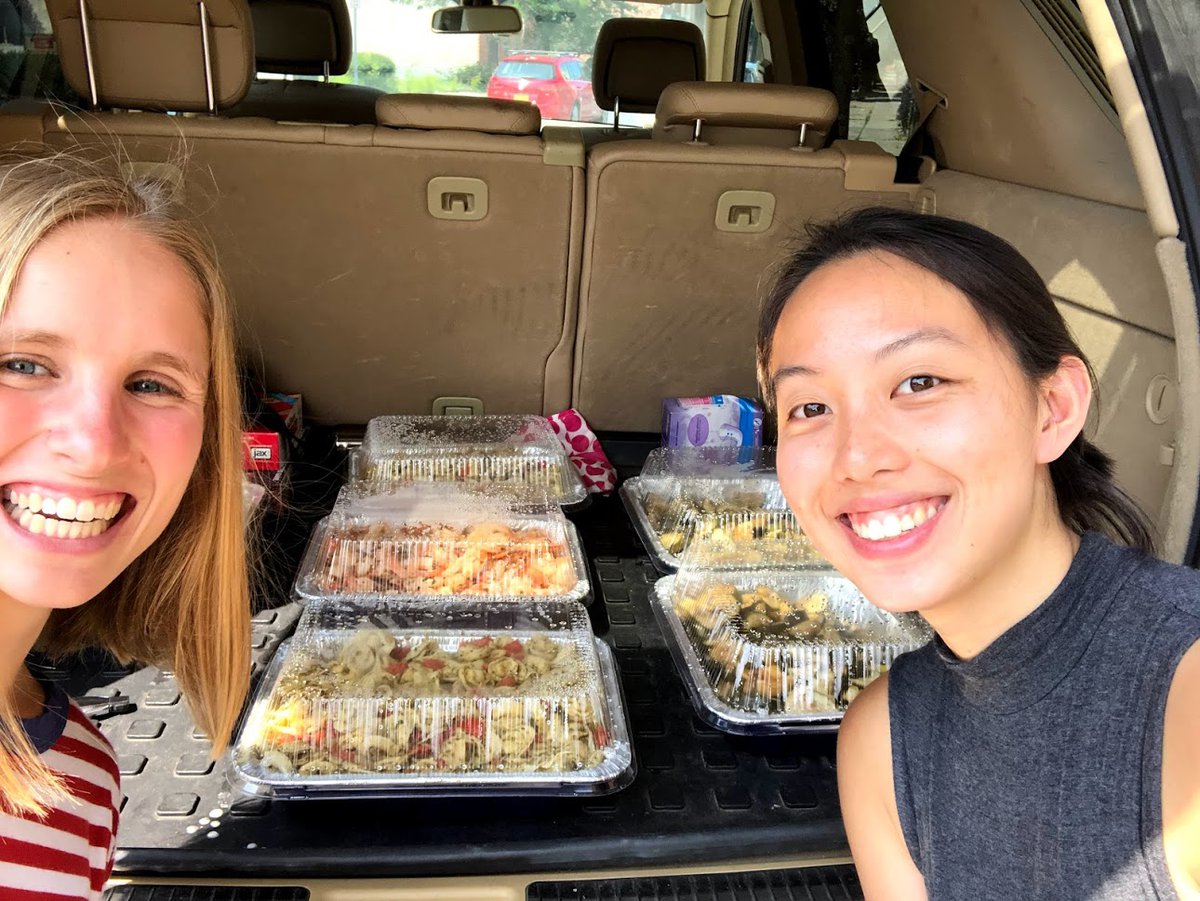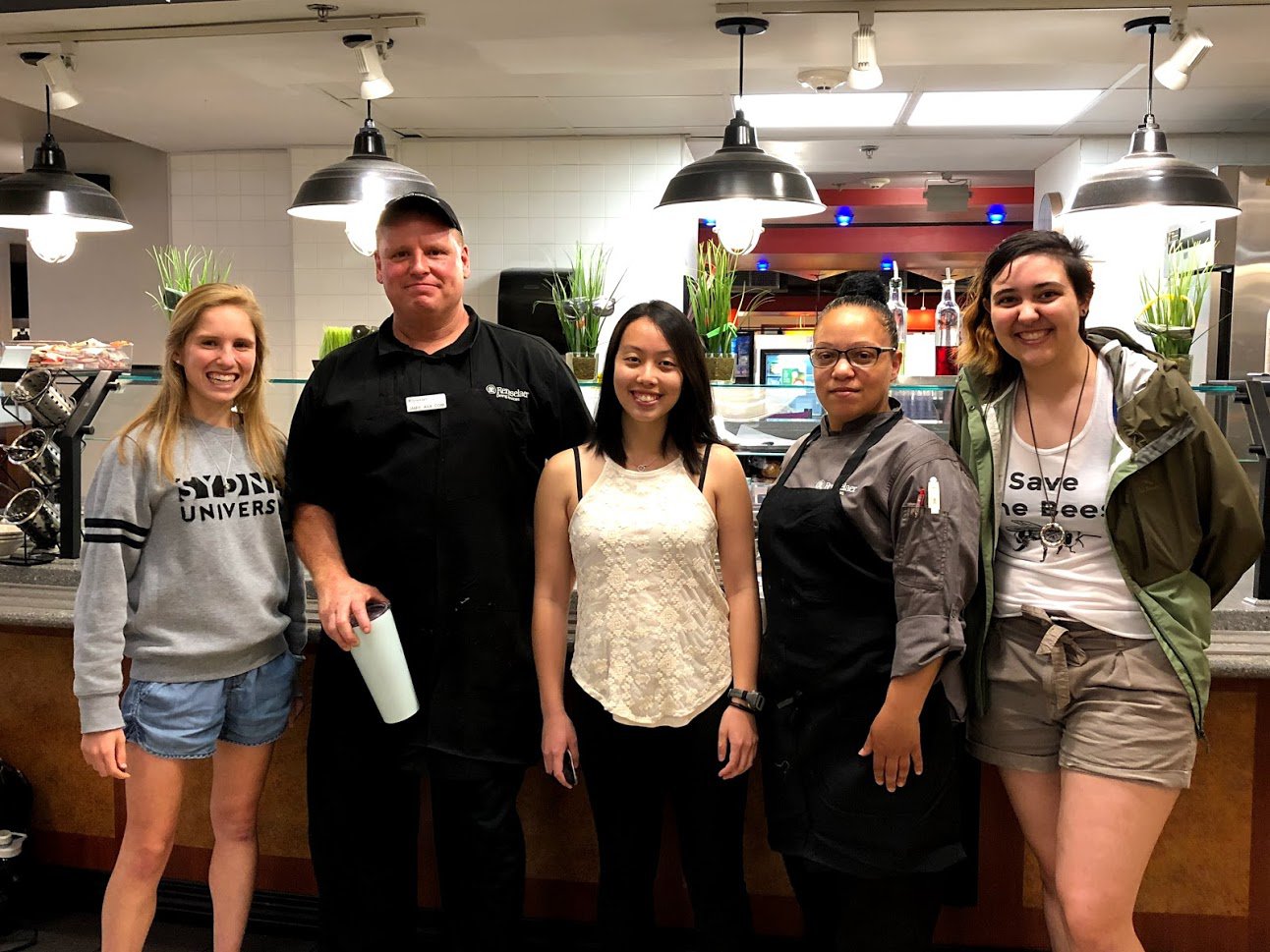Food waste is a choice we don’t have to make

The Food Recovery Network is a national student-led organization that aims to connect campuses, businesses, and farms with excess food and nonprofits in need. Successful FRN chapters attract members who have a passion for addressing food waste and food insecurity. Despite having an overwhelming number of students concerned about food waste, Rensselaer’s FRN chapter has struggled to establish a stable foundation since its founding in January 2018.
RPI FRN started with a team of three freshmen passionate about food waste and the environment. With Arch away opportunities, study abroad semesters, and other obligations, RPI FRN continues with the struggle to increase membership to more than about ten volunteers a semester. After the closing of campus last March, our chapter was put on hold for the rest of 2020 due to COVID-19 restrictions. Returning to campus for the Spring 2021 semester, we were overjoyed to hear that we had been approved to continue operations.
In the past seven weeks alone, our chapter has diverted over two tons of leftover food from campus dumpsters to Joseph’s House, a non-profit homeless shelter in downtown Troy. While this amount of food may seem high, it would be much higher without all of the current efforts in place to reduce food waste on campus.
Sodexo, RPI’s food service provider, is dedicated to environmental and philanthropic initiatives. Before FRN existed, many procedures were already in place to donate leftovers to Joseph’s House. This year, our campus joined WasteWatch to more closely monitor waste metrics. Despite Sodexo’s best efforts to make the proper amount of food for the number of students they expect to attend each meal, they must overestimate in order to ensure they can meet all potential demands, which makes food waste inevitable.
On the contrary, many households, restaurants, and farms across the country are not held to these standards, and have little justification for the food in their dumpsters. According to estimates from Feeding America, approximately 72 billion pounds of perfectly edible food is wasted every year. Discarded food was also found to be the largest category of waste for municipal landfills (21%) and accounts for over 14% of U.S. methane emissions.
Food insecurity - the lack of accessibility to food - still affects millions of Americans daily. According to the U.S. Department of Agriculture, it was reported that some 13.7 million households (10.5% of the population) experienced food insecurity in 2019. Additionally, households with children were 1.5 times more at risk of experiencing food insecurity than houses without children. During the coronavirus pandemic, it is estimated that cases of food insecurity have more than doubled due to soaring unemployment and a crippled economy.

Although food waste and food insecurity appear to be disparate, with a little planning and dedication, these complimentary issues can be aligned to solve themselves. Legislation has been introduced to help alleviate waste and to redistribute surplus food inventory to those in need. The Federal Bill Emerson Good Food Donation Act was signed into law by President Clinton in 1996 to protect donors and businesses from criminal and civil liability when donating food or grocery products to non-profit organizations in good faith. The act also standardizes liability and sets a floor of gross negligence for donors. It is through this piece of legislation that the Food Recovery Network and other organizations are able to reduce unnecessary food waste and fight hunger.
Since 2011, the Food Recovery Network chapters have collectively recovered 4.9 million pounds of food while preventing over 7.4 million pounds of carbon dioxide emissions. This is a start but not a complete solution. The dichotomy of food recovery as a means of addressing both environmental and food insecurity issues is multifaceted. We need to rethink how we see the production and distribution of food in our local society on a large scale.
Nonetheless, grassroots efforts help people make a difference every day in the lives of people in need, and it is from modest beginnings that movements are made. RPI’s chapter of the Food Recovery Network started from a small group of three with a desire to make students think a little harder about the food on their plates. In three tumultuous years, we have grown to over 50 members ready to take on the challenges at hand. Hopefully, our ranks will continue to grow as we work together to reduce food waste.
Thank you to everyone who helped make RPI’s Food Recovery Network what it is today: Sophia Cahillane ’21 and Matthew Salemi ’21, for helping get us started; Hunter Borwick ’21, Safa Koreshi ’21, Jody Sunray ’23, and Tiffani Szeto ’21, for taking things over during trying times; and past and future leadership teams and volunteers for stepping up to the plate. If you are interested in learning more about FRN, join our Discord server or email us at frnrpi@gmail.com so we can add you to our contact list. The Troy community needs your help now more than ever.
